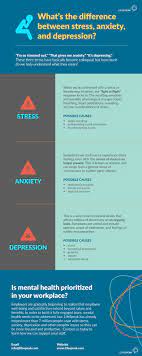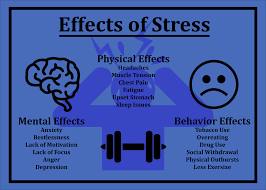The Impact of Stress, Anxiety, and Depression on Mental Health
Stress, anxiety, and depression are common mental health issues that affect millions of people worldwide. While these conditions are distinct, they often coexist and can have a significant impact on an individual’s well-being.
Stress
Stress is the body’s natural response to challenges or demands. While some level of stress is normal and can even be beneficial in motivating us to take action, chronic stress can have detrimental effects on both our physical and mental health. Prolonged exposure to stress hormones can lead to issues such as high blood pressure, weakened immune system, and increased risk of heart disease.
Anxiety
Anxiety is characterized by feelings of worry, fear, or unease that are often disproportionate to the actual threat. Generalized anxiety disorder (GAD), panic disorder, social anxiety disorder, and specific phobias are common types of anxiety disorders. Symptoms may include restlessness, irritability, muscle tension, and difficulty concentrating. Untreated anxiety can interfere with daily activities and impact relationships.
Depression
Depression is a mood disorder that causes persistent feelings of sadness and loss of interest in activities. It can affect how you think, feel, and handle daily activities. Major depressive disorder (MDD), persistent depressive disorder (PDD), postpartum depression, and seasonal affective disorder are different forms of depression. Symptoms may include fatigue, changes in appetite or weight, feelings of worthlessness or guilt, and thoughts of death or suicide.
Seeking Help
If you are experiencing symptoms of stress, anxiety or depression that persist over time and interfere with your daily life, it’s important to seek help from a mental health professional. Therapy, medication, lifestyle changes such as exercise and mindfulness practices can all be effective in managing these conditions.
Remember that mental health is just as important as physical health. By addressing stressors early on and developing healthy coping mechanisms for managing anxiety and depression symptoms, you can improve your overall well-being and quality of life.
Understanding Stress, Anxiety, and Depression: Key Emotional Indicators, Differences, Coping Strategies, and the Connection Between Them
- What are 5 emotional signs of stress?
- What is the difference between stress anxiety and depression?
- How do you deal with severe stress and anxiety?
- How does stress cause anxiety and depression?
What are 5 emotional signs of stress?
When it comes to identifying emotional signs of stress, there are several common indicators that may manifest in individuals experiencing heightened levels of stress. Five emotional signs of stress include increased irritability or mood swings, feelings of overwhelm or being easily agitated, persistent worry or anxiety, difficulty concentrating or making decisions, and a sense of hopelessness or helplessness. Recognizing these emotional cues can be crucial in addressing and managing stress effectively to promote mental well-being and overall health.
What is the difference between stress anxiety and depression?
Stress, anxiety, and depression are distinct yet interconnected mental health conditions. Stress is the body’s response to external pressures or demands, while anxiety involves excessive worry or fear that can be triggered by real or perceived threats. On the other hand, depression is characterized by persistent feelings of sadness, hopelessness, and loss of interest in activities. While stress is typically a reaction to specific events or situations, anxiety and depression can persist even when the stressor is removed. It’s important to recognize the differences between these conditions to seek appropriate support and treatment tailored to each individual’s needs.
How do you deal with severe stress and anxiety?
When faced with severe stress and anxiety, it is essential to prioritize self-care and seek support from mental health professionals. Engaging in relaxation techniques such as deep breathing exercises, meditation, or yoga can help calm the mind and body. It is also beneficial to maintain a healthy lifestyle with regular exercise, balanced nutrition, and sufficient sleep. Talking to a therapist or counselor can provide valuable insights and coping strategies for managing stress and anxiety effectively. Additionally, practicing mindfulness and setting boundaries to reduce overwhelming situations can contribute to a more balanced mental state. Remember that seeking help is a sign of strength, and there are resources available to support you in navigating through challenging times.
How does stress cause anxiety and depression?
Stress can trigger anxiety and depression through various mechanisms. When faced with stressors, the body releases cortisol and adrenaline, known as stress hormones, to prepare for a fight-or-flight response. Prolonged exposure to high levels of these hormones can disrupt the balance of neurotransmitters in the brain, affecting mood regulation. Chronic stress can also lead to changes in brain structure and function, impacting areas responsible for emotional processing and decision-making. Additionally, persistent stress can weaken the immune system and increase inflammation in the body, which have been linked to both anxiety and depression. Overall, the interplay between stress, hormones, brain chemistry, and physical health plays a complex role in the development of anxiety and depression disorders.



